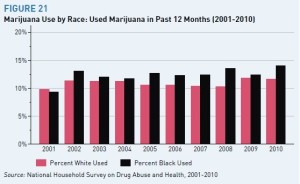Senatobia man arrested for cheering at sister’s graduation
2015/06/04 – JACKSON, MS (Mississippi News Now) -It’s the story all over social media – a Mississippi man, along with three others, were arrested for cheering at a high school graduation.
The story and now the video has had many asking today – did the school go too far?
Henry Walker couldn’t restrain himself during Senatobia High School’s graduation. He cheered when his little sister walked out, only to be arrested for disturbing the peace.
Family members couldn’t believe it.
“The only thing he said was, ‘You did it baby!’ to his little baby sister,” Walker’s mother, Linda, says. “I don’t think its right, the way they did him.”
Linda says it’s not right for the school to press charges against people who are proud of their family members’ accomplishments.
“I do think it is a highly questionable use of authority to bring criminal charges in the circumstances,” says Matt Steffey, a law professor at Mississippi College. “I mean this is a common thing that everyone has been to one of these ceremonies and experienced.”
Superintendent Jay Foster says the rules were laid out in writing for the graduation ceremony and that disruptions have caused certain graduates to not hear their name called.
He also tells our sister station, WMC, that this is not the first time family members have gotten out of hand.
“In the past, there have been things going on where people have yelled at–even left during the ceremony,” Foster says. “[Those instances] have caused certain graduates to not be able to hear their name called.”
Foster says parents are supposed to wait until all names have been called to cheer.
He says school leaders made several attempts to warn parents. He says they even posted a warning in the graduation program saying people who staged outbursts would be asked to leave.
But Steffey says correcting decorum at this type of celebration with criminal action was not the answer.
He says, “Whether or not you can lodge criminal charges is questionable enough. It seems to me whether one should is even more highly questionable.”
Steffey added, all school officials have every right to escort disruptive family or friends out of the graduation ceremonies.







